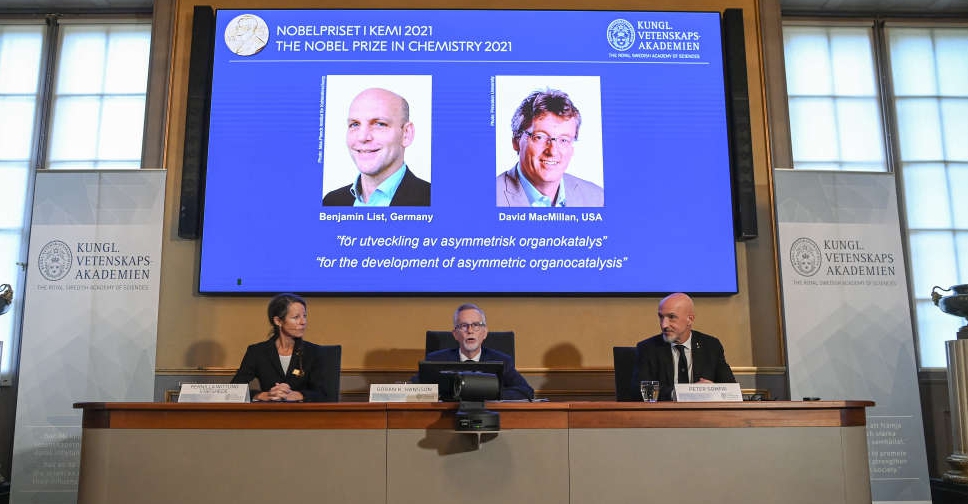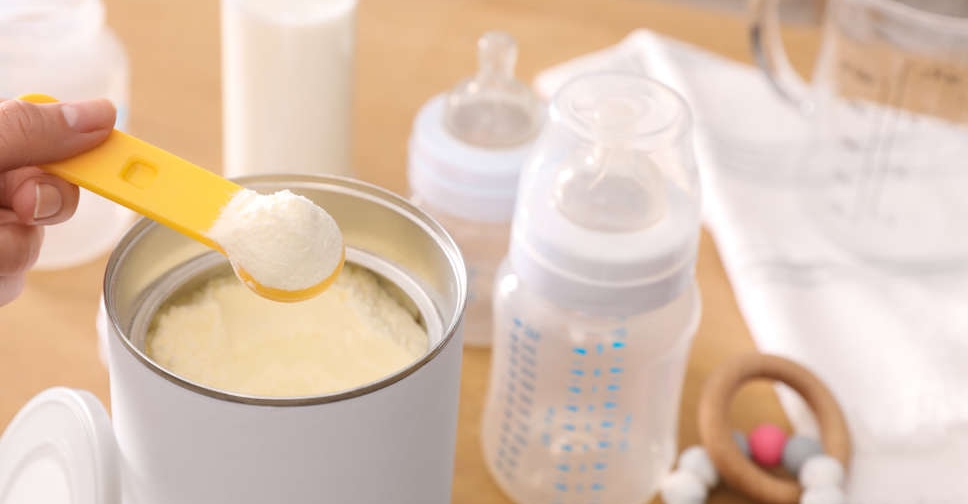
German Benjamin List and Scottish-born David MacMillan won the 2021 Nobel Prize in Chemistry for their development of asymmetric organocatalysis, a "new and ingenious tool for molecule building".
"Organic catalysts can be used to drive multitudes of chemical reactions," the Royal Swedish Academy of Sciences said in a statement. "Using these reactions, researchers can now more efficiently construct anything from new pharmaceuticals to molecules that can capture light in solar cells."
It said these catalysts were both environmentally friendly and cheap to produce.
The more than century-old prize is awarded by the Royal Swedish Academy of Sciences and is worth 10 million Swedish crowns ($1.14 million).
The Nobel prizes, for achievements in science, literature and peace, were created and funded in the will of Swedish dynamite inventor and businessman Alfred Nobel. They have been awarded since 1901, with the economics prize first handed out in 1969.
The chemistry award is the third of this year's crop of Nobel prizes and follows the prizes for medicine or physiology, and physics, announced earlier this week.
Previous winners of the Chemistry prize include Marie Curie and Fredrick Sanger, who won twice.
Seven women have won, including last year's laureates Emmanuelle Charpentier and Jennifer Doudna who were awarded the prize for creating genetic 'scissors' that can edit DNA.




 Reopening of Gaza's Rafah crossing expected Monday
Reopening of Gaza's Rafah crossing expected Monday
 Winter storm death toll in United States reaches 90
Winter storm death toll in United States reaches 90
 Pakistan says 145 militants killed after attacks in Balochistan
Pakistan says 145 militants killed after attacks in Balochistan
 Israeli strikes kill 26 in Gaza, health officials say
Israeli strikes kill 26 in Gaza, health officials say
 US government starts likely brief shutdown as House fails to approve deal
US government starts likely brief shutdown as House fails to approve deal
 Thousands demonstrate in Minnesota and across US to protest ICE
Thousands demonstrate in Minnesota and across US to protest ICE
 France tightens infant milk rules after recalls
France tightens infant milk rules after recalls
 Modi ally proposes social media ban for India's teens as global debate grows
Modi ally proposes social media ban for India's teens as global debate grows




